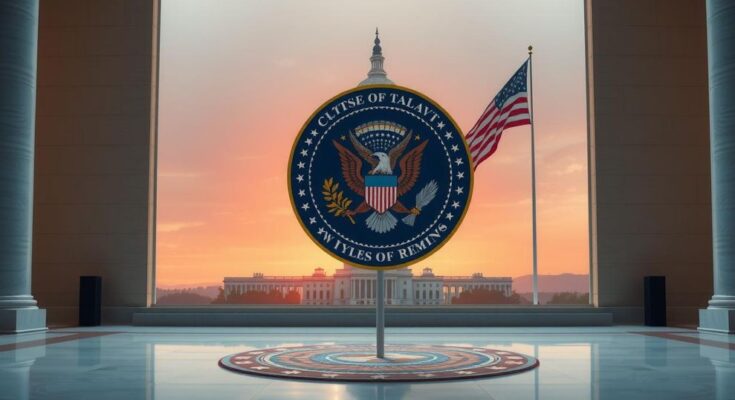Yamandú Orsi was sworn in as Uruguay’s President on Saturday, affirming his commitment to the Constitution. He emphasized the importance of trust in politics and acknowledged historical struggles for democracy. Orsi expressed dedication to global peace and stability, marking a significant return to left-wing governance after conservative leadership.
On Saturday, Yamandú Orsi was inaugurated as Uruguay’s new President, serving until 2030. The ceremony took place in the Legislative Palace, attended by members of the General Assembly and international representatives. In his oath, Orsi pledged to honorably fulfill his duties and to uphold the Constitution of Uruguay.
In his inaugural address, President Orsi characterized Uruguay as a diverse and harmonious society that continues to impress globally. He emphasized the importance of trust in the political sphere, asserting, “That is why we say that Uruguay works.” His election marks a return of the Broad Front party after five years under conservative leadership.
During his speech, Orsi reflected on the historical significance of the date, remembering that it marked the restoration of democracy in Uruguay 40 years ago after a period of political persecution. He noted, “There are repercussions from that period that continue to this day,” highlighting the ongoing commitment to freedom and justice.
Orsi expressed his resolve to serve with dedication, stating he arrives with the same conviction as always. He acknowledged former presidents present at the inauguration, including José Mujica and Julio María Sanguinetti, as well as honoring the contributions of deceased leaders like Tabaré Vázquez.
At the conclusion of his address, President Orsi extended a message of collaboration to international representatives, expressing Uruguay’s willingness to contribute to global stability and peace in an increasingly complex world.
Yamandú Orsi’s inauguration as Uruguay’s president signifies a renewed commitment to democracy and trust. He aims to foster collaboration both domestically and internationally, reflecting on past struggles for freedom. His leadership marks a return to leftist governance, with aspirations for a more inclusive political landscape in Uruguay.
Original Source: efe.com




